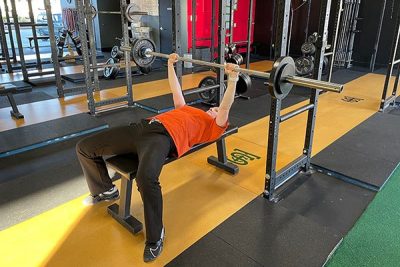
Are you too old to start running? The answer is no. It’s never too late to take up running.
Many things are possible if you really want them. Age is mainly a matter of mindset and well-being. There are 30-year-olds who feel like they are already too old for everything, whereas there are 70-year-olds bursting with energy as if they were 40 years younger. Whether running at age 50 or 70, all you need is a dedicated training plan and mindset to take the first step towards a healthy and active lifestyle.
Running keeps you young
We’ve all heard of the harmful side effects of having a sedentary life, not moving enough throughout the day because of our jobs, lack of motivation, or age. But let’s talk about the benefits of staying active and running for older adults.
A long-term study has shown that staying active, in this case by running, can reduce disability and mortality rates, especially in older runners.(1) By running at least 30 minutes three times per week, runners over 50 were found to have a comparable metabolic cost to young people in their 20s. Metabolic cost is the amount of energy a person needs to move, and this level naturally rises with age.(2)
It is never too late to start running, and there is no reason that older runners can’t exercise just like their younger counterparts, provided that they keep these five tips in mind when getting active again.
Basically, there is no reason that older runners can’t exercise just like their younger counterparts, provided that they keep a few basic principles in mind.
Important note:
Before starting up your training, make sure to have a physician give you a check-up and clear you to do sports again.
5 Tips For OLDER RUNNERS
Tip #1 – Get plenty of rest
As you age, your metabolism slows down, and your body takes longer to renew and regenerate cells. This is why it’s important to give your body sufficient time to recover after every training session. When you start exercising again after a long gap, you need to slowly increase the volume and intensity of your training to give your body time to adapt to the new demands.
Tip #2 – Alternate your workouts
A great way for older runners to start running again is to alternate between walking and running. Regular endurance training not only increases your level of fitness and well-being, but it also prevents cardiovascular diseases like high blood pressure and high cholesterol.
Alternating your fitness activities can help you reach your goals faster, as exercising to the point of exhaustion can be counterproductive. However, you can still work in some high-intensity sessions into your training. It is also a good idea as an older runner to see a physician or an expert to determine your optimal heart rate training zones.
Tip #3 – Work on your strength and flexibility
Muscle mass and flexibility naturally decrease with age, which is why it’s so important to incorporate strength training and stretching into your fitness routine. Maintaining strength and flexibility for runners over 65 can help improve posture, decrease the risk of injury, and improve overall running performance.
Studies have shown that it is possible to slow age-related losses in performance through targeted strength training. In fact, there is evidence suggesting that muscle growth and strength gains of up to 100{32c02201c4e0b91ecf15bfd3deecd875caca8b9615db42cfd45ce3d8de8d0829} are possible even at an advanced age.(3)
This is why you should incorporate strength and stability exercises into your training on a regular basis. Exercises with your own body weight are perfect for this because they require a high degree of coordination and stabilization. These moves can also help improve your running technique and agility.
Tip #4 – Strengthen your bones
Pushing and pulling are the two best ways to fight bone and mineral loss. Running regularly and static strength exercises are great for increasing bone mineral density (BMD). This improves the overall stability of your bones and prevents bone mass loss and osteoporosis.
Another way to help strengthen your bones is by eating calcium-rich foods. Milk, cheese, and other dairy products are loaded with calcium, so start your day with a serving of your favorite yogurt. Some alternative foods also high in calcium are nuts, tofu, and broccoli. Be sure to add some of these to your next meal.
Tip #5 – Get the right nutrition
As you get older, your metabolism slows down, and your basal metabolic rate decreases. This means your body requires fewer calories. This, together with too little exercise, is the main reason why people put on weight with age. Therefore, be mindful of serving sizes and the number of calories you consume, and eat a balanced and healthy diet.
Be sure to include lean protein, whole grains, fruits, and vegetables, as well as low-fat dairy products or milk alternatives in your diet.
Ready to start running again? Taking up running is possible at any age. Although older runners may not be able to perform as well as their younger counterparts, runners over 50 can reap many of the same benefits.
Start your training slowly and gradually increase the intensity as your body gets used to running again. Use the adidas Running app to set your training goals. It is recommended for runners over 50 to train three times a week for 30 minutes. Try this as one of your running goals.
No matter your fitness goals, remember that the important thing is to get active and keep moving as you age!
***






